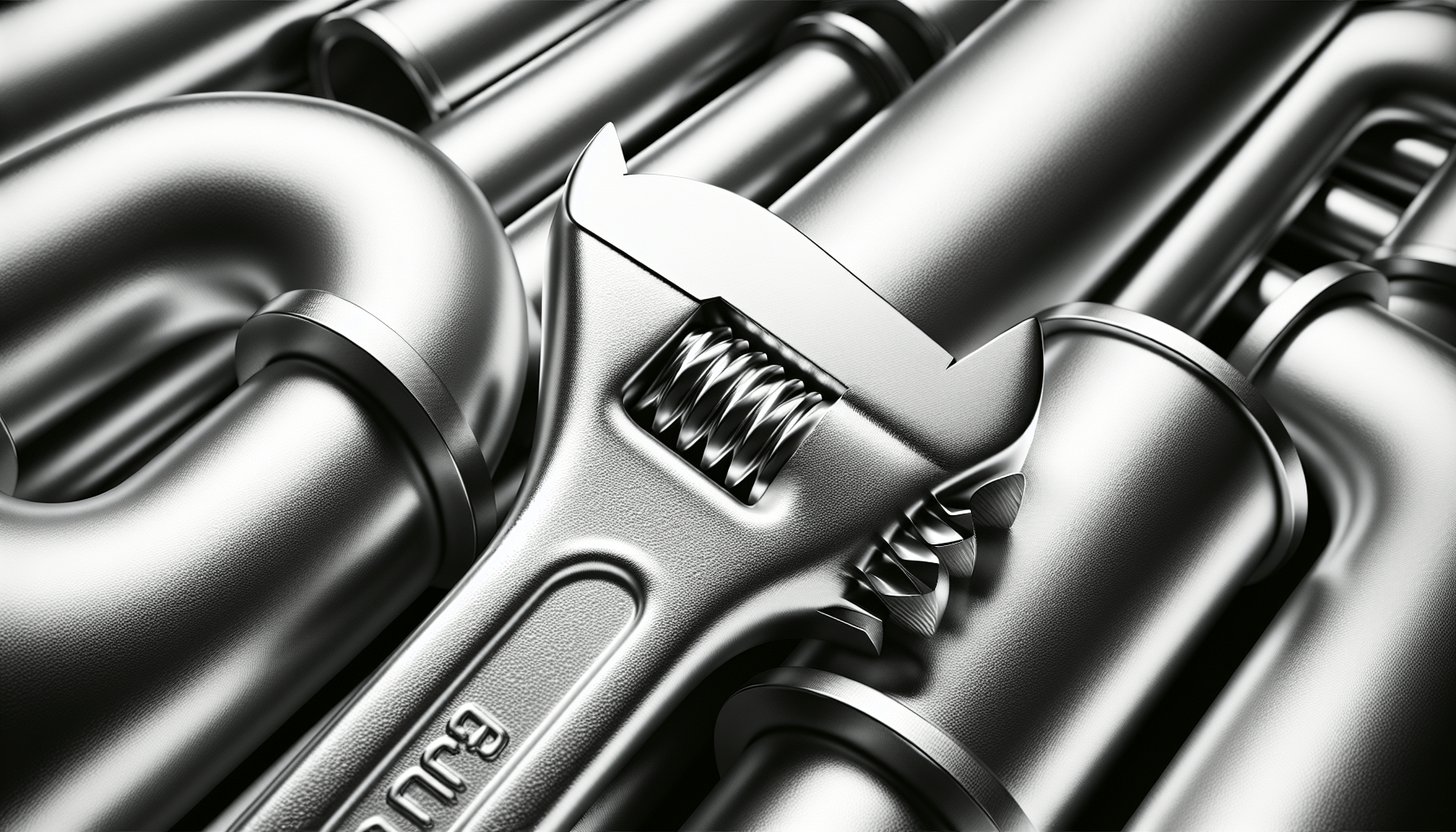Ready to find out how much plumbers make? Well, you’re in luck! In this article, we’ll explore the average salary for plumbers and uncover some key factors that can affect their earnings. Whether you’re considering a career in plumbing or simply curious about the financial side of this profession, we’ll provide all the essential information you need. So, let’s dive right in and discover just how lucrative a career in plumbing can be!
Average Salary of Plumbers
Plumbing is a highly skilled profession that offers a rewarding career path. If you are considering becoming a plumber, one important factor to consider is the salary potential in this field. Several factors can influence a plumber’s salary, including experience, specialization, geographical location, union membership, and education. By understanding these factors, you can better evaluate the earning potential in the plumbing industry.
Factors Affecting Plumbers’ Salaries
Experience
Experience plays a crucial role in determining a plumber’s salary. As with any profession, plumbers who have more years of experience typically earn higher wages. This is because experience brings a higher level of expertise and knowledge, making experienced plumbers more valuable to employers.
Specialization
Specialization within the plumbing field can also impact a plumber’s salary. Plumbers who have specialized in certain areas, such as pipefitting, industrial plumbing, or steamfitting, may earn higher wages due to the additional skills and expertise required for these specialized roles.
Geographical Location
The geographical location where a plumber works can significantly influence their salary. Plumbers in high-demand areas or densely populated cities often earn higher wages compared to those working in rural or less populated areas. Cost of living and local economic conditions also play a role in salary disparities across different regions.
Union Membership
Union membership can have a positive impact on a plumber’s salary. Labor unions negotiate collective bargaining agreements that set minimum wage standards, establish salary scales, and provide benefits for their members. Plumbers who are part of a union often benefit from higher wages and better working conditions.
Education
While not always a requirement, formal education can contribute to higher earning potential for plumbers. Completing an apprenticeship program or obtaining a degree in plumbing can demonstrate a higher level of expertise, leading to better job opportunities and higher salaries.
Average Annual Salary of Plumbers
Understanding the average annual salary of plumbers provides valuable insight into the earning potential in this profession.
National Average Salary
According to recent data, the national average annual salary for plumbers hovers around $55,000 to $70,000. However, it is important to note that this figure can vary based on the factors mentioned earlier.
Regional Variations
Salary variations across different regions are common. Plumbers working in metropolitan areas or states with a higher cost of living generally command higher salaries. This can be attributed to the increased demand for plumbing services and the higher living expenses in these areas.
State with the Highest Average Salary
The state with the highest average salary for plumbers is typically Alaska. Plumbers in Alaska often earn significantly higher wages compared to other states due to the unique challenges and extreme weather conditions they encounter in their line of work.
State with the Lowest Average Salary
On the other end of the spectrum, the state with the lowest average salary for plumbers is generally Mississippi. Factors such as a lower cost of living and limited demand for plumbing services in certain areas contribute to the lower salaries observed in this state.
Average Hourly Salary of Plumbers
In addition to the average annual salary, understanding the average hourly salary of plumbers can provide a better perspective on their earning potential.
National Average Hourly Wage
The national average hourly wage for plumbers typically ranges from $25 to $35 per hour. This figure can vary based on factors such as experience, specialization, location, and union membership.
Regional Variations
Similar to the annual salary variations, the average hourly wage for plumbers can differ across regions. Plumbers working in metropolitan areas or larger cities often earn higher hourly wages compared to those employed in rural areas.
City with the Highest Average Hourly Wage
Cities with a high cost of living, such as New York City or San Francisco, tend to have the highest average hourly wage for plumbers. This reflects the increased demand for skilled plumbers in these urban areas and the higher expenses associated with living and operating a business.
City with the Lowest Average Hourly Wage
Cities in states with lower average salaries, such as certain areas of the Midwest, may have a lower average hourly wage for plumbers. However, it is important to note that wage disparities can also exist within cities, depending on factors such as local economic conditions and demand for plumbing services.
Salary Range for Plumbers
Understanding the salary range for plumbers can provide a clearer picture of the earning potential throughout their career.
Entry-Level Salary Range
Plumbers who are just starting their careers can expect an entry-level salary range of around $35,000 to $45,000 annually. This figure may vary based on factors such as location and level of education.
Mid-Career Salary Range
As plumbers gain more experience and expertise, their salaries typically increase. Mid-career plumbers can expect to earn a salary range of approximately $45,000 to $65,000 per year.
Experienced Salary Range
Experienced plumbers with a solid track record and extensive expertise can command higher salaries. The salary range for experienced plumbers often exceeds $70,000 per year.
Benefits and Perks
In addition to competitive salaries, plumbers often enjoy a range of benefits and perks as part of their compensation package.
Health Insurance
Many plumbing employers provide health insurance coverage for their employees. This can include medical, dental, and vision insurance options, ensuring plumbers have access to healthcare services when needed.
Retirement Plans
Retirement plans, such as 401(k) or pension plans, can provide plumbers with long-term financial security. These plans allow plumbers to save for retirement and take advantage of employer contributions, helping them build a stable financial future.
Paid Time Off
Paid time off is an essential benefit for plumbers who need time to rest and recharge. This can include vacation days, sick leave, and holidays, allowing plumbers to maintain a work-life balance and take care of personal commitments.
Bonuses and Incentives
In some cases, plumbers may receive bonuses or incentives based on their performance or completion of project milestones. These additional incentives can enhance plumbers’ overall earning potential and reward their hard work and dedication.
Opportunities for Advancement
Plumbing offers numerous opportunities for advancement and career growth beyond the initial plumber role.
Becoming a Master Plumber
One path of advancement within the plumbing industry is to become a master plumber. Master plumbers have achieved a higher level of expertise and are licensed to handle more complex plumbing projects. With additional experience and certifications, master plumbers often earn higher salaries and have access to more lucrative job opportunities.
Starting Your Own Plumbing Business
For those with an entrepreneurial spirit, starting your own plumbing business can be a rewarding and potentially lucrative career move. By establishing your own business, you have the opportunity to build a reputation, grow a customer base, and potentially earn higher profits compared to working as an employee.
Comparison with Other Trades
To provide a comprehensive understanding of the earning potential in the plumbing industry, it is valuable to compare plumber salaries with other trades.
Comparing Plumber Salaries with Electricians
Plumbers and electricians often work together on construction projects and share similarities in terms of required skills and expertise. However, on average, electricians tend to earn slightly higher salaries compared to plumbers. This can be attributed to factors such as demand, complexity of work, and specialization within the electrical field.
Comparing Plumber Salaries with HVAC Technicians
Heating, ventilation, and air conditioning (HVAC) technicians also work closely with plumbers, particularly when it comes to installing and maintaining plumbing systems. While the salaries of plumbers and HVAC technicians are comparable, it is worth noting that both professions offer stable earning potential and excellent career prospects.
Comparing Plumber Salaries with Carpenters
Carpenters are another trade that often collaborates with plumbers during construction projects. Plumbers generally earn higher salaries compared to carpenters due to the specialized nature of their work and the demand for their services.
Job Outlook for Plumbers
The job outlook for plumbers remains positive, with steady demand for skilled professionals in this field.
Expected Job Growth
According to the Bureau of Labor Statistics, the employment of plumbers is projected to grow by 4% from 2019 to 2029, which is on par with the average growth rate for all occupations. This growth is driven by the need to maintain, repair, and upgrade plumbing systems in residential and commercial buildings.
Employment Sectors with High Demand for Plumbers
Plumbers are in high demand across various sectors, including residential, commercial, and industrial construction. Additionally, the need for plumbers in the maintenance and repair of existing plumbing systems ensures a consistent demand for skilled professionals in this field.
Promising Areas for Plumbing Job Opportunities
As urban populations continue to grow, cities experiencing rapid development and construction activities offer promising job opportunities for plumbers. Areas with aging infrastructure also present a need for skilled plumbers to upgrade and maintain existing plumbing systems.
Conclusion
Becoming a plumber can be a lucrative career option for those who possess the necessary skills and qualifications. With factors such as experience, specialization, geographical location, union membership, and education influencing plumbers’ salaries, it is important to consider these aspects when evaluating the earning potential in this field. With a positive job outlook and continuous demand for skilled plumbers, pursuing a career in plumbing can lead to a rewarding and financially stable future.





